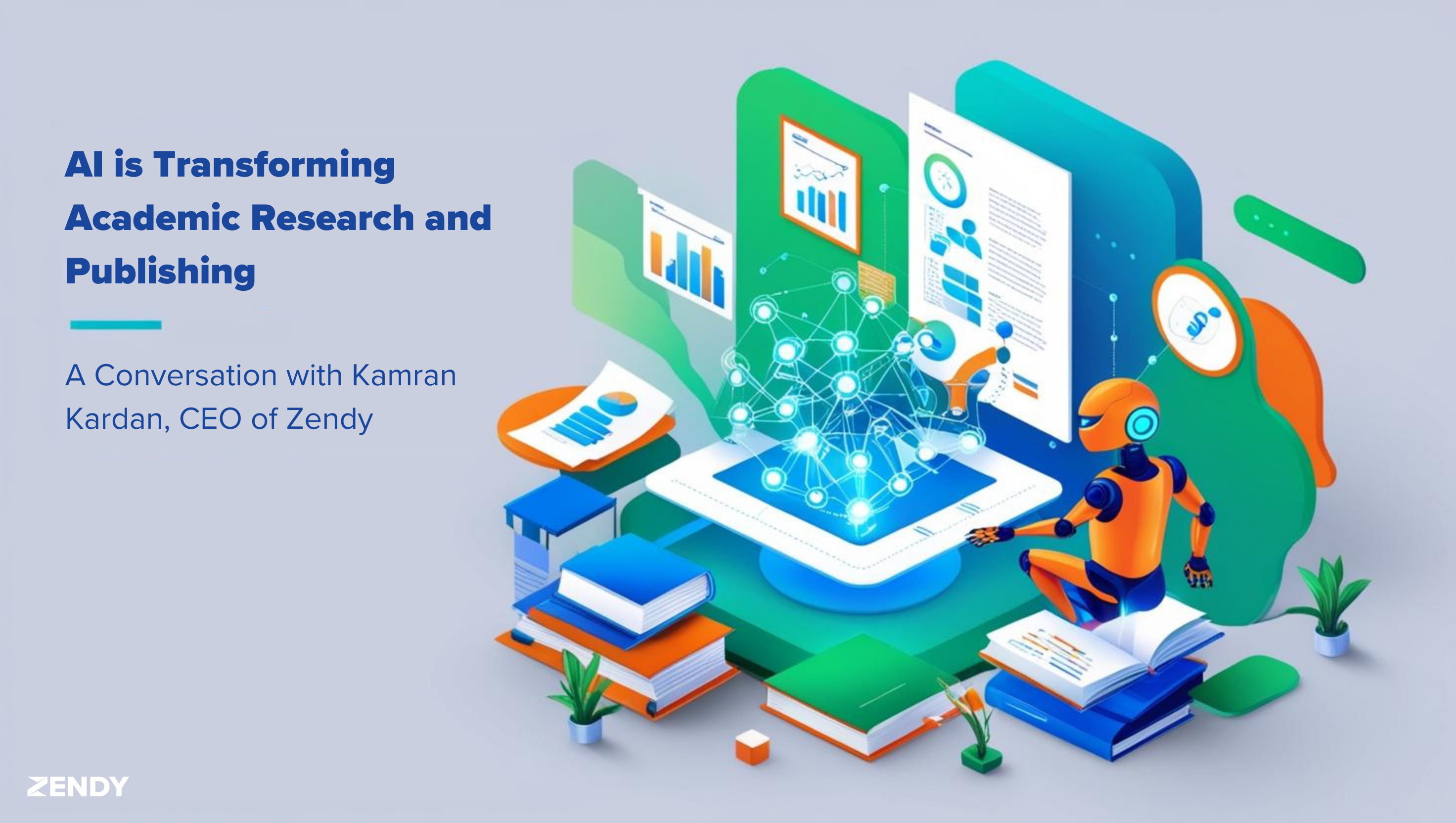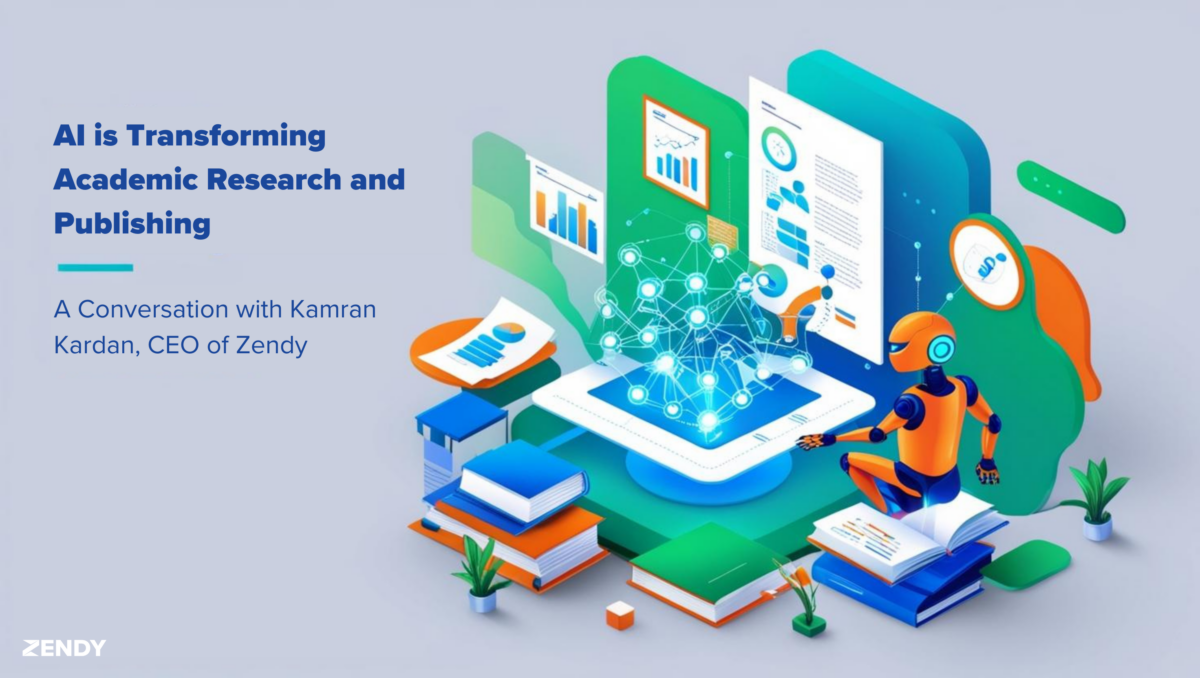
AI’s real potential lies not just in speeding up processes but also in helping users engage more deeply with academic content. Sabine Louët, CEO of SciencePOD sat down with Kamran Kardan, CEO of Zendy to discuss how technology, particularly AI, is reshaping the way researchers and independent scholars access critical information and how research is published.
Removing Barriers in Academic Research
When asked by Sabine Louët “what drove the creation of Zendy?” Kamran Kardan’s response was clear and purposeful: “Zendy was created to remove the barriers that restrict access to academic research”.
He highlights the significant gap that exists for those outside privileged institutions, who often face prohibitive costs or limitations when trying to access essential research. Zendy, he says, aims to make academic content not only affordable but also widely accessible to researchers, students, and professionals globally.
Accessing scientific literature remains a privilege reserved for those with institutional affiliations, leaving independent researchers or those from less-resourced regions at a disadvantage. As Kardan puts it, “Zendy is committed to levelling the playing field”, it offers a legitimate alternative to illicit means of accessing research.
AI’s Role in Enhancing Research Accessibility
AI has become a buzzword, but Kardan stresses the importance of AI in Zendy’s strategy, describing AI as an enabler rather than the focal point. Zendy, he explains, uses AI to enhance user experience by making vast amounts of data more navigable.
One of the platform’s key AI-driven features is its summarisation tool, which allows users to quickly digest complex academic papers. With this tool, users can identify relevant content faster and focus their research efforts more effectively.
A forthcoming feature called ‘findings’, will use AI to group related articles together, offering a comparative perspective on topics and highlighting differing viewpoints. This tool is designed to empower researchers to explore a topic from multiple angles without having to sift through unrelated material.
Safeguarding Research Integrity in the Age of AI
Another point of discussion between Sabine Louët and Kardan was the issue of integrity while also leveraging AI. Kardan acknowledges that this is critically important and explains that Zendy is built on principles of transparency and respect for intellectual property. Their AI tools do not merely extract data but give due credit to authors and publishers.
In addition, the platform’s revenue-sharing model ensures that content creators benefit from the usage of their work, fostering a more sustainable and fair ecosystem for academic publishing.
Kardan also addresses the issue of AI-generated inaccuracies, commonly referred to as “hallucinations”. He emphasises that Zendy’s AI is structured to avoid these risks. If the AI does not have sufficient data to provide an answer, it refrains from making assumptions, thus maintaining a high standard of accuracy.
AI: Not Just Speed, but Deeper Learning
In Kardan’s view, AI’s real potential lies not just in speeding up processes but also in helping users engage more deeply with academic content. The tools developed by Zendy are designed to simplify complex materials, making them more approachable for users across various disciplines, without compromising on the depth of information.
Louët agrees and notes that these features, particularly AI-driven comparison and summarising tools, align with the needs of modern researchers who require both efficiency and reliability in handling academic content.
Looking Ahead: The Future of AI in Research
What does the future look like? Kardan foresees more AI advancements that will continue to transform research access, making it more affordable, transparent and equitable. The focus is not just on technology for technology’s sake but on providing meaningful solutions that directly address the challenges of the academic community.
“AI’s role in academic publishing is still evolving”, says Kardan, “and Zendy is committed to using AI responsibly to enhance access to knowledge, not to replace human expertise”.
